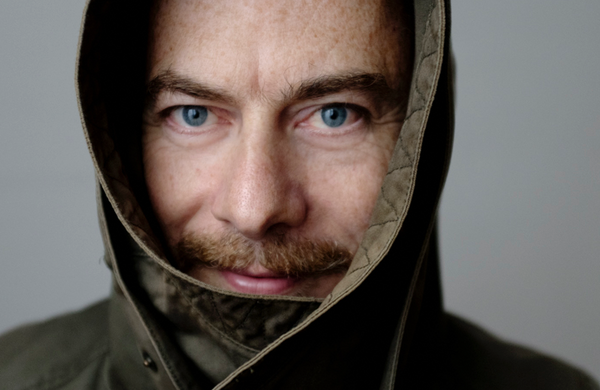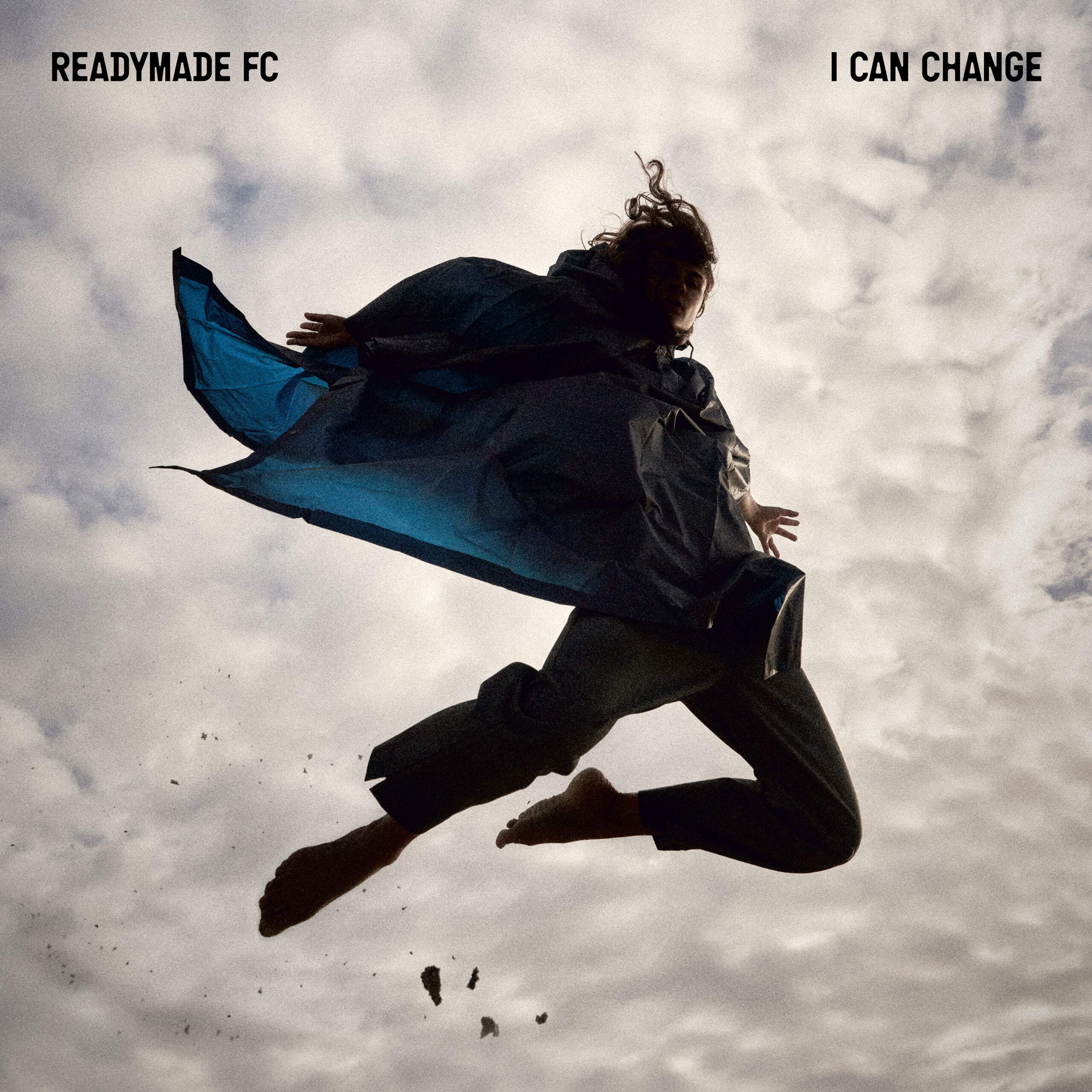
WEBSITE
Readymade FC
Readymade FC crafts a mesmerizing blend of sophisticated pop and abstract experimentation, intertwining diverse voices like Ann O'Aro and Jasmine Armando. The result is a unique, unclassifiable musical experience that defies categorization.
I can change. This is the ‘programmatic’ title Readymade FC chose to reenter the limelight after years of absence, setting the tone and intent for a new era. I can change, an affirmation he translates into a question: “How can my music evolve while staying recognisable?” The answer is a collection of tracks that bear his singular signature, the self-portrait of a musician full of the paradoxes that have fed his creativity for so many years. Can one be a fan of abstract hip-hop and of 90s jungle-era jazz? Can one’s hands mess around with a computer while one’s ears are drawn to acoustic music? Can a lo-fi sound be paired with slightly borderline arrangements and a concise, highly precise writing style? Can one enjoy writing songs on the margins of elusive pop as well as crafting oddly shaped rhythmic loops?
Readymade FC settled in the heart of these fruitful ambiguities to weave the fabric of his new album, the fourth under this moniker. At renowned Parisian studio Ferber he assembled pieces, some fifteen-years-old and the most recent produced in 2022. “Most tracks came out of encounters with singers, their artistic proposition just as valid as mine. It’s a creative exchange and not a producer-vocalist scenario. The dominant male shtick is appalling.” And although he did lead, create, produce, arrange, compose and play every instrument (guitar, bass, piano, clarinet, autosampler), this genre-defying producer allowed himself to be guided by these voices; foremost amongst them Anglo-Moroccan actress-cum-rapper Jahz Armando, fresh off starring in hit TV series Gangs of London. It was “a decisive encounter” for him, as up until that point he was planning a collection of instrumental tracks in the same vein as his album Bold, which gave him his first break at the turn of the millennium as the poster child of the French-language electronica scene, then in its infancy.
Five years prior, the then thirty-year-old joined the flagship French touch label F Communications, putting out several EPs before releasing the milestone of a record that was Bold. Having grown up surrounded by music – his great-grandmother was an opera singer, his older sister is a pianist, his younger sister a violinist and his father, a music-loving journalist, introduced him to jazz – he spent his teenage years putting together pop bands singing in English. It was in the late 1980s however that Jean-Philippe Verdin found his voice; first in West Berlin where, while in the army, he discovered the Berlin underground scene and its thumping beats and bass. Then in Paris where Philippe Cohen Solal, creator-to-be of Gotan Project, took him to a rave on the Jussieu university campus. Here we go! The next day he stopped making pop music altogether, and soon bought an Atari sequencer to get to grips with machines while working as a graphic designer and artistic director. A former student at the Paris-Cergy art school, he chose ReadyMade as his stage name, as a nod to his artistic background and to the fact DJs and producers never showed their faces. The self-taught multi-instrumentalist, well-learned and a fan of pianists Bud Powel and Al Haig, reflects on this with a touch of irony: “It was a way to say that electronic music both was and wasn’t a work of art.” On the brink of releasing his first EP, he discovered a German power pop band already used the name and added “FC”.
This was the start of his ascent, when he rose to international recognition (sharing stages with Underworld, Roÿksopp, Carl Craig and working with David Sylvian to name but a few…) all the while being called on by some of the biggest names in the French music scene (Etienne Daho, Jacno, Alain Chamfort, and later Michel Delpech, for whom he produced a comeback record). After his second album Flexion / F.Me, which brought together soundtracks created for a Dior fashion show, unreleased exclusives and a text by designer Hedi Slimane, he joined quality label Peacefrog and released Babilonia, where voices (those of Feist, Yaël Naim, and his for the first time) have something to say; as always in his work.
From then on, Readymade FC slowly disappeared from public view to work from the underground. Under a new moniker (Akzidenzgrotesk, the name itself quite something), he produced a number of soundtracks for blockbuster films such as Lol and crafted sounds for artists like Barbara Carlotti, Daphné, Hubert Mounnier, La grande Sophie and recently Charles Pasi on Blue Note. This polarity makes him laugh, “The last time the public saw me was on [popular French TV host] Michel Drucker’s show! Talk of a different vibe!”
After years of absence, albeit not of silence, he is back with a new album. Sticking to his guns, this new record finds itself half way between sophisticated pop and abstract experimentation, improv that suspends time and accurate-to-the-second music making, between ternary and binary, a rhythmic component that’s fundamental to his search for good old swing. All of these things and more make up this odd and unframed collection, which opens up in all directions, defying the sacrosanct laws of categorisation. This is neither a compilation of songs nor a concept album, and as the tracklist unfolds the listener discovers a host of singular voices. Ann O’Aro for starters, a Reunionese singer who sings the woes of the post-colonial state of her island on a pulsating beat as intricate as can be. “I asked her to bring her universe, onto which I could layer my own context.”
This dialogue was his modus operandi for all the songstresses who found themselves in the recording booth: Jasmine Armando, who launches into an autobiographical account of her life as a gay woman living in London; Italo-Moroccan Kal, who speaks about her life as a Black woman in a majority-white country; Claire Vailler, member of the band Midget!, who lays her subtle vocals atop a sublime electro-pop backdrop; Ladybird in Paris, a French singer of Iranian origin raised in Australia, whom he first met as Julie, house music vocalist at F Com, and who now recounts her life into the mic in a Grace Jones-esque talk-over. Last but not least, Jeff Hallam, a Paris-based double bassist from Portland who previously played with Verdin in his bop group. He lays his slightly wonky phrasing on interlacing lo-fi beats, reminiscent of beat generation figure Lenny Bruce.
Adding to the aforementioned, free-spirited chants is the voice of the master of the house, who likes to keep things fresh as he weaves between countless instruments and styles, whether that be singing in gibberish on Art of Brutalism, emulating a disco diva on Dolphins or assuming the role of storyteller on The Army Band. Here he reminisces on his career as a soldier in West Berlin just before the fall of the Berlin wall, split between the disciplinary battalion, playing piano for the officers’ mess and giving a hand to East German fugitives; a wonderful, timeless ballad that closes this new chapter with aplomb.


